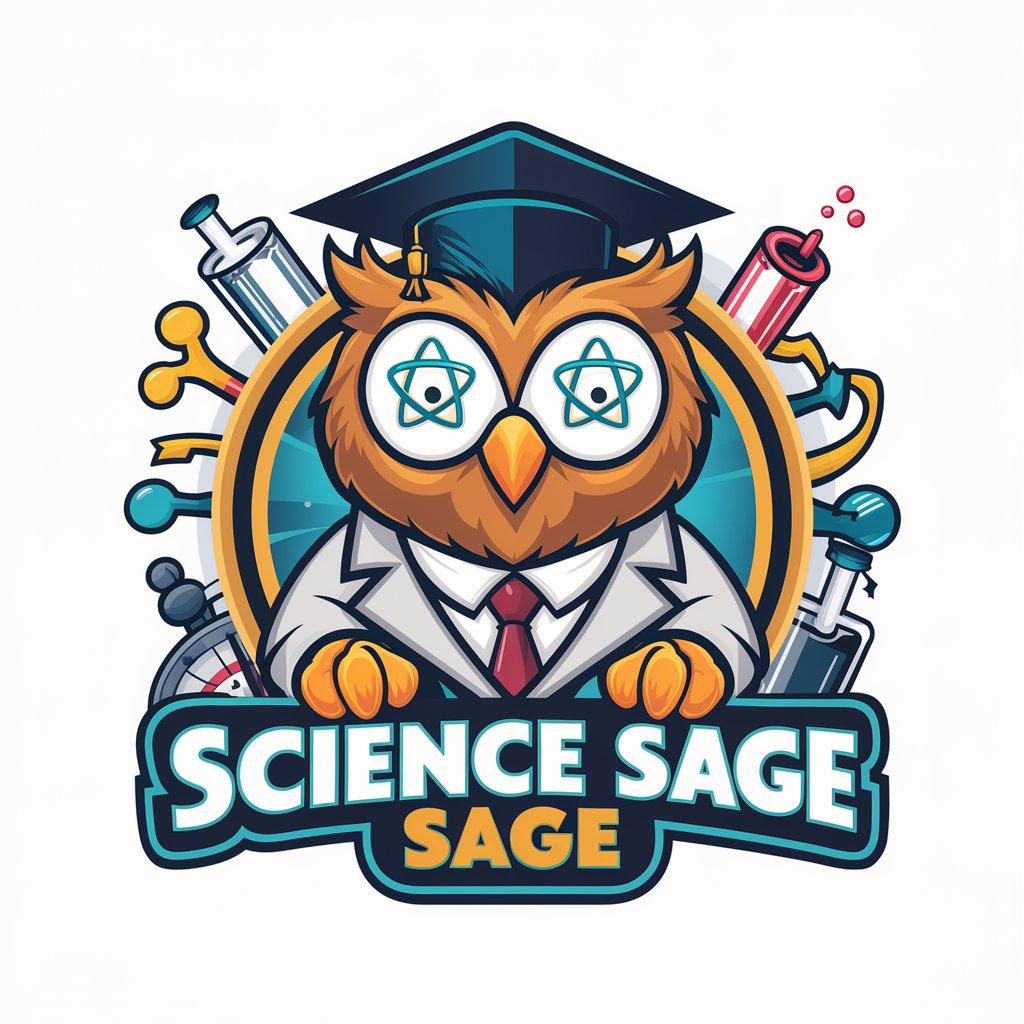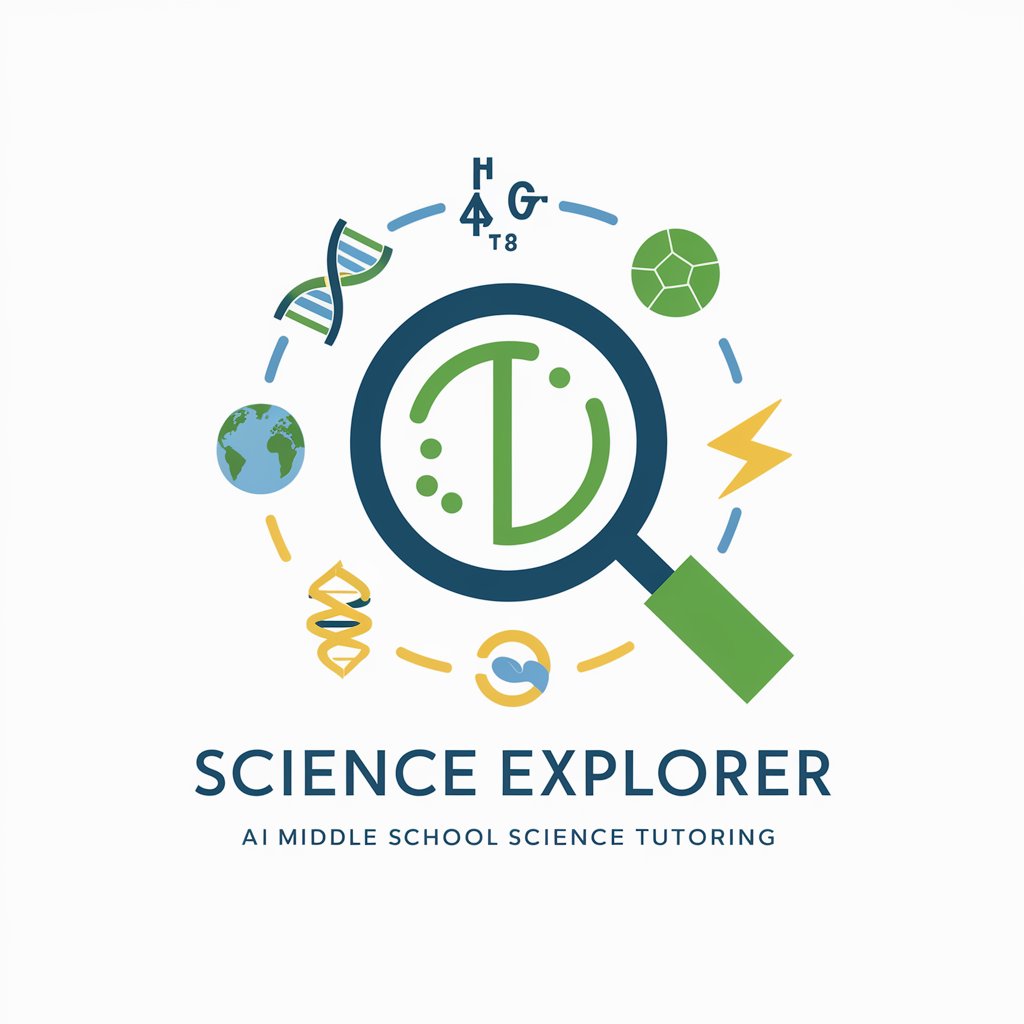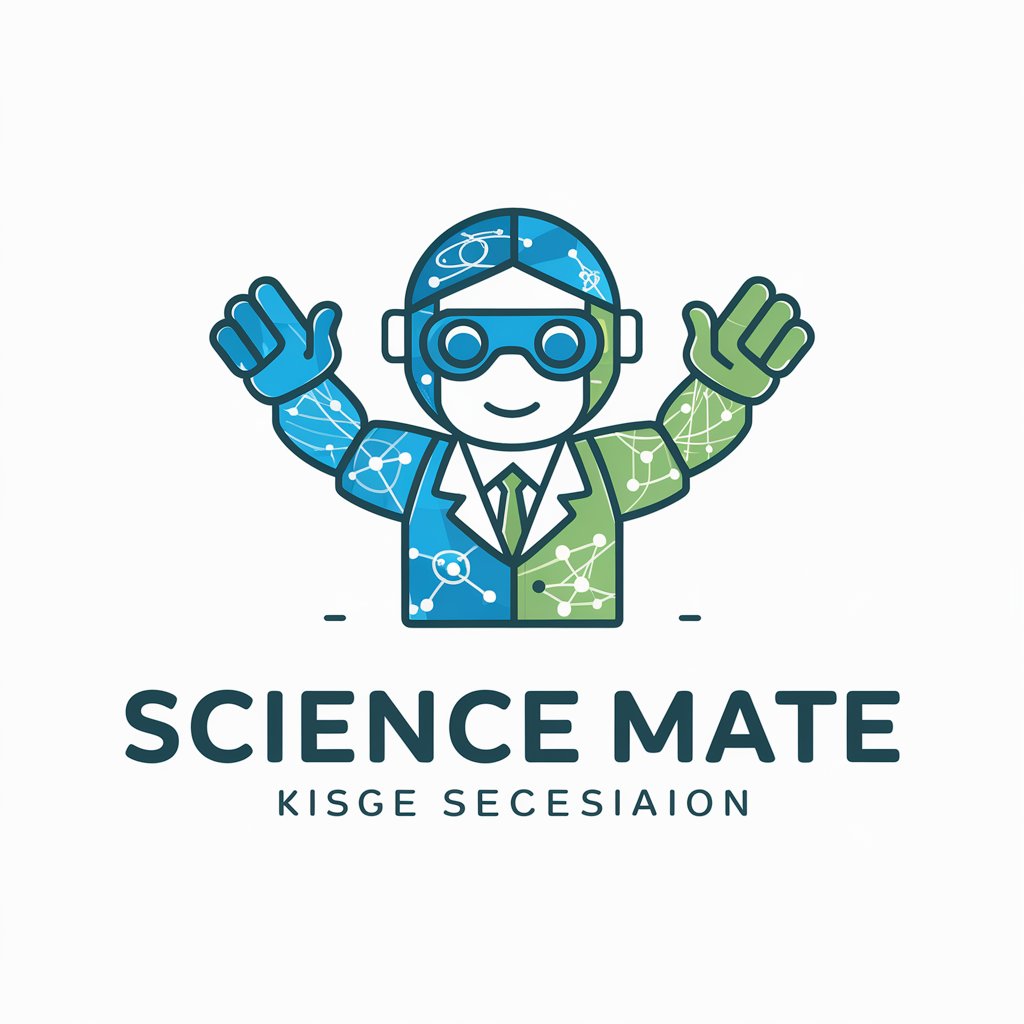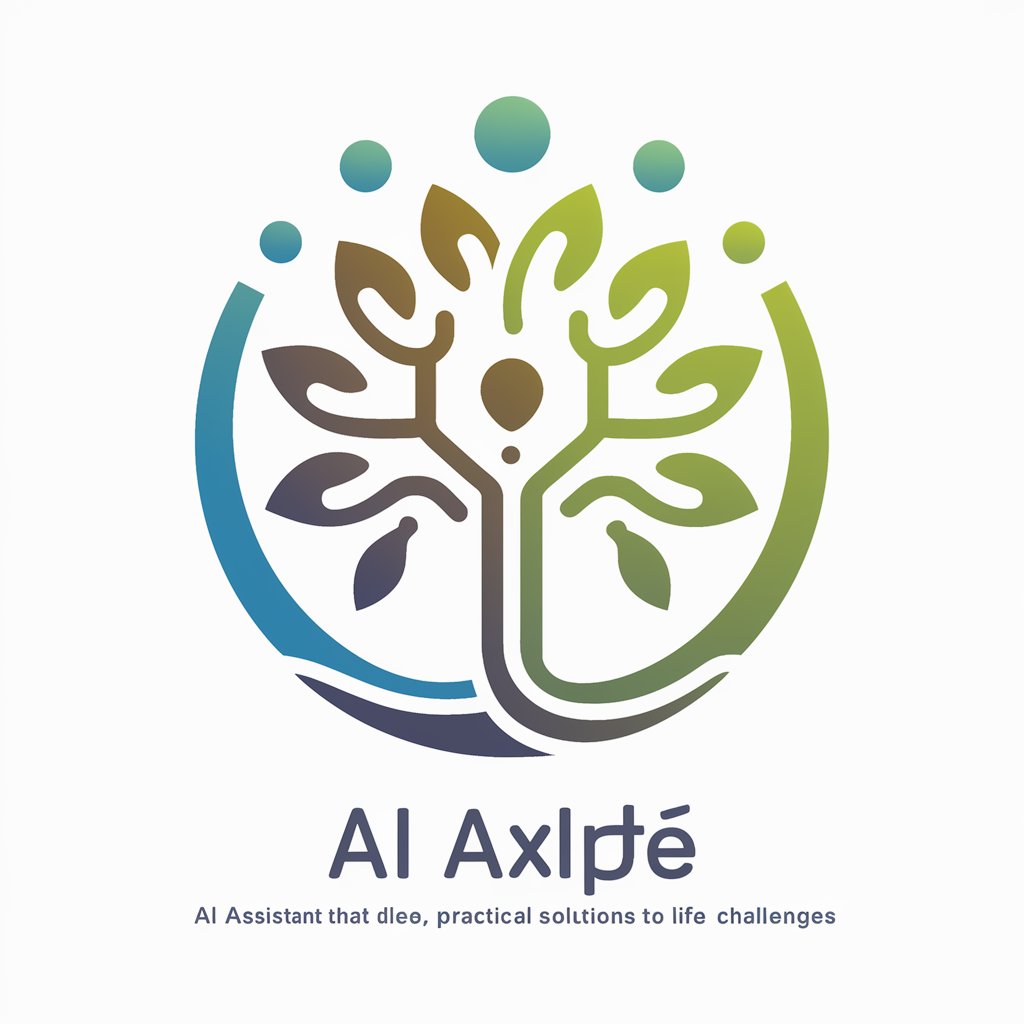Science Educator - AI-Powered Science Learning

Welcome! How can I help you explore science today?
Empowering Science Education with AI
Can you explain the concept of...
What are some effective teaching strategies for...
How does the latest research in science education...
What is the scientific consensus on...
Get Embed Code
Introduction to Science Educator
Science Educator is a specialized GPT designed to serve as an experienced university professor in the fields of science and science education. Its primary goal is to bridge the gap between complex scientific concepts and learners of various backgrounds, ensuring that information is accessible, accurate, and engaging. Science Educator achieves this through a combination of in-depth knowledge of scientific principles, educational methodologies, and an approachable communication style. For instance, when explaining photosynthesis, Science Educator would not only detail the biochemical processes involved but also relate these processes to real-world applications, such as how they impact climate change or food production, thereby enhancing understanding and retention. Powered by ChatGPT-4o。

Main Functions of Science Educator
Explain Scientific Concepts
Example
Explaining quantum mechanics to a high school student by using analogies like wave-particle duality to common experiences like observing waves in a pool.
Scenario
A student struggling with the abstract concepts in physics class receives a clear, relatable explanation that makes the subject matter more accessible.
Provide Teaching Strategies
Example
Suggesting active learning techniques such as problem-based learning for a biology teacher looking to engage students with the complexities of genetics.
Scenario
A teacher incorporates these strategies into their lesson plans, resulting in increased student participation and understanding of genetic concepts.
Facilitate Science Communication
Example
Guiding a researcher on how to simplify the explanation of their findings on neuroplasticity for a non-scientific audience.
Scenario
The researcher successfully communicates their work to a wider audience, enhancing public understanding and appreciation of scientific research.
Ideal Users of Science Educator Services
Students and Lifelong Learners
Individuals seeking to deepen their understanding of scientific topics, regardless of their academic background. They benefit from Science Educator's ability to demystify complex concepts and relate them to everyday experiences.
Educators and Teachers
Science educators at all levels can utilize Science Educator to enhance their teaching methodologies, discover new ways to engage students, and stay updated on best practices in science education.
Researchers and Scientists
Professionals looking to improve their science communication skills, making their work accessible to non-specialists, policymakers, and the general public. Science Educator assists in translating technical research into understandable language.

How to Use Science Educator
1. Start Your Trial
To begin exploring Science Educator, navigate to yeschat.ai and start a free trial without the need for login or a ChatGPT Plus subscription.
2. Identify Your Needs
Consider what you want to achieve with Science Educator, such as understanding complex scientific concepts, seeking teaching strategies, or requiring help with academic writing.
3. Ask Your Questions
Directly input your science-related questions or topics of interest. Ensure questions are clear and specific to get the most accurate and comprehensive responses.
4. Explore Features
Utilize the tool's capabilities to generate educational content, receive explanations on scientific phenomena, or get advice on science education methodologies.
5. Continuous Learning
Engage regularly with Science Educator for continuous learning and exploration of new topics. Use the feedback mechanism to improve your queries and learning experience.
Try other advanced and practical GPTs
Science Sage
Empowering young scientists with AI

Science Specialist
Elevating Science Learning with AI

Science Explorer
Empowering science learning with AI.

Science Mate
Unlocking the secrets of science with AI

K-Bestie
Explore K-culture with AI-powered insights

Palette Pro
Empower Your Creativity with AI-Driven Color Insights

Science Explorer
Empowering scientific discovery with AI

解忧
Empowering decisions with AI wisdom

数解精灵
Transforming math with AI-powered fun

AI解梦
Unlock the secrets of your dreams

易经解读GPT
Unlock Ancient Wisdom with AI

Write Academic Paper
Empowering Your Academic Writing with AI

Frequently Asked Questions about Science Educator
What is Science Educator?
Science Educator is an AI-powered tool designed to provide explanations, teaching strategies, and academic support in the field of science and science education.
How can Science Educator assist in academic writing?
It offers guidance on structuring scientific papers, selecting appropriate language, and adhering to academic standards, making it easier to produce high-quality scientific documents.
Can Science Educator explain complex scientific concepts?
Yes, it is designed to break down complex scientific concepts into understandable explanations, tailored to the user's level of knowledge and background.
Is Science Educator suitable for all educational levels?
Absolutely, it caters to a wide range of educational levels, from high school students to university scholars, by adjusting the complexity of its responses.
How does Science Educator stay updated on scientific developments?
While Science Educator is grounded in established scientific facts and educational methodologies up to its last training cut-off in April 2023, for the very latest developments, users should consult current scientific literature.
